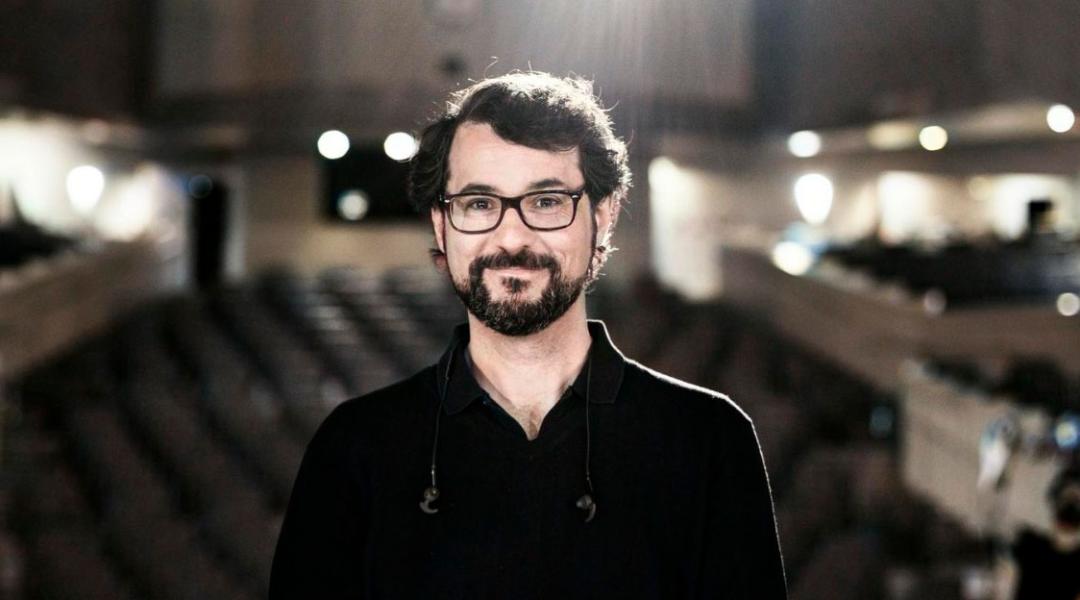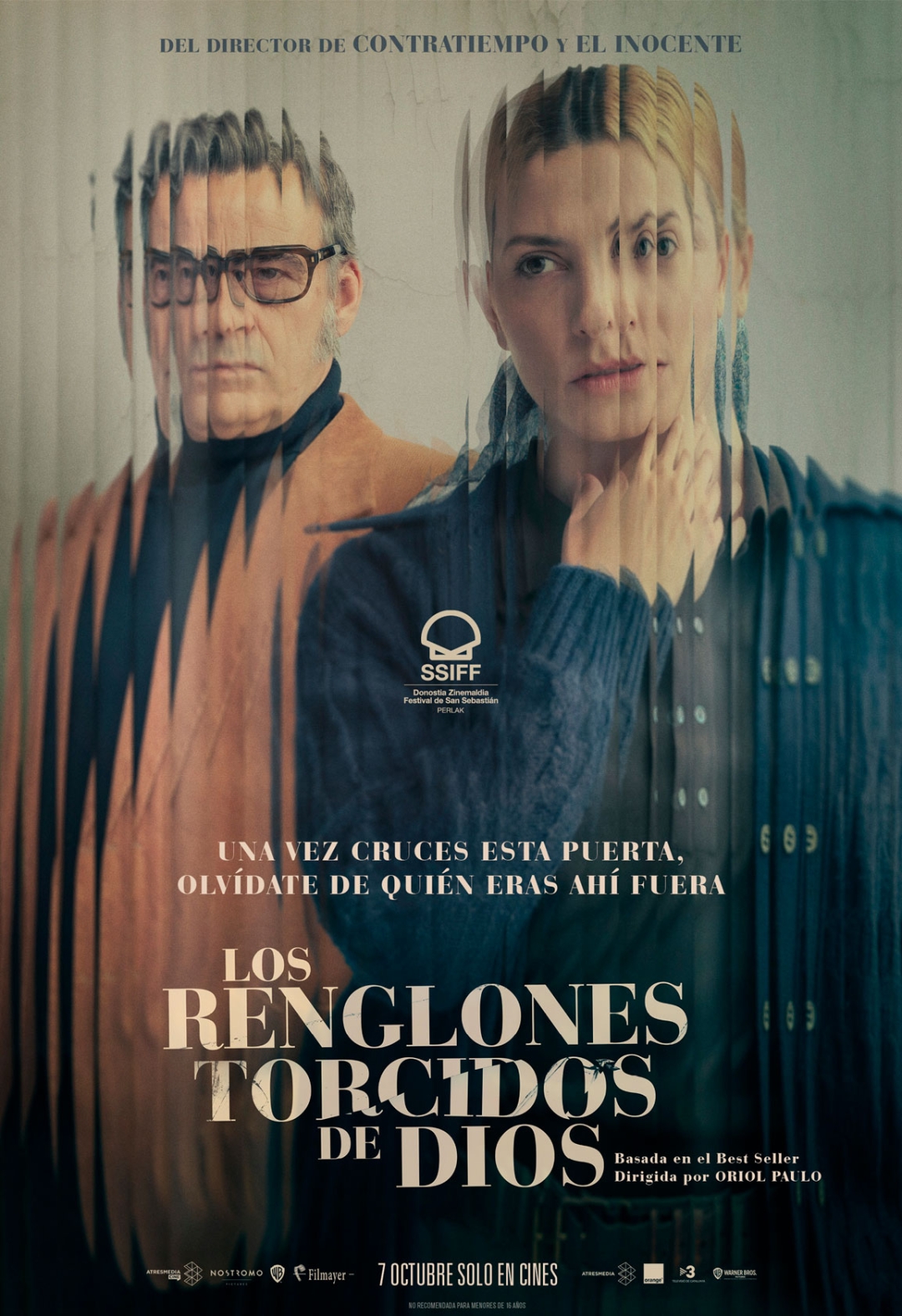Fernando Velázquez
A cinema musician

Sometimes just a few notes are enough to remember a film and feel moved again. Composer Fernando Velázquez, one of the most renowned and well-respected in Spain, knows what we’re talking about. This year, the soundtrack for ‘God’s Crooked Lines’ has warranted his fifth Goya nomination and he aspires to repeat the success of 2017, when he took home the award for ‘A Monster Calls’.
Film is an art form that has always gone hand-in-hand with music. At the beginning, when films were silent due to technical limitations, cinemas had live music, and the piano was the most used instrument. In 1927, with the release of The Jazz Singer, soundtracks were finally integrated with the images. Notes that awoke feelings in the audience and invited them to smile, to be moved, to be frightened, and to dream. Almost a century later, Fernando Velázquez (Getxo, 1976), is a master of this art. The Orphanage, The Impossible, Spanish Affair, A Monster Calls, or Mirage are just some of the dozens of soundtracks this composer has worked on. He also has a long line of pieces for television —the latest: Patria, The Innocent or The Girl in the Mirror— and last November he received the Latin Grammy Award for Best Arrangement for the song El plan maestro, from Jorge Drexler’s album Tinta y tiempo.
His success at the Goya Awards proves that this is one of the most talented musicians on the Spanish cinematic scene. In 2017, after three unfruitful nominations (The Orphanage, The Impossible, and Spanish Affair), he took home an award for his music on A Monster Calls. A triumph he hopes to repeat at the ceremony this year with his score for God’s Crooked Lines, the latest film by director Oriol Paulo. His relationship with directors is essential to Velázquez, which is perhaps why he has built solid professional love stories with filmmakers like Koldo Serra, Juan Antonio Bayona or Paulo himself. “I enjoy working as a team. I need to have a really good understanding of the story the director wants to tell and how they want to tell it, you have to get into their head,” he declares. We start chatting to get to know this creative process better.
What is your process like when creating the soundtrack for a film?
What I love the most is working with the images. I add music to the film the director has put together, and responding to what has been filmed is full of nuance. It’s different to working from a script. Ideally, the editing should be finished, though that’s uncommon. The process requires being really flexible because it means working with a film that can change. There’s very little time and you need to be really quick.
“I need to have a really good understanding of the story the director wants to tell and how they want to tell it, you have to get into their head”
And what relationship do you have with those in charge of the film?
It depends on each project, but I enjoy working as a team. I need to have a really good understanding of the story the director wants to tell and how they want to tell it, you have to get into their head. You need to grasp all the information and the emotional charge well to lead it to the best possible place. For me, it’s important to know that I can make suggestions and that these can be adapted to find the best way to tell the film’s story. In short, listening and being heard.
You write music for film and TV, but also create concert pieces. What’s the difference?
The goal is the same: communicating, which is the purpose of every work of art. The difference lies in that the motivation comes from different places. For a concert piece, I look at and attend to my own motivations, I write my own story, shall we say. Being free and working for oneself is complicated because it involves taking lots of decisions.

Poster for ‘God’s Crooked Lines’, whose soundtrack has won Fernando Velázquez his fifth Goya nomination. © Atresmedia Cine
Which tone should the God’s Crooked Lines soundtrack take on?
Like in the novel, we had to find a middle ground between reality and fiction. The classical tone was achieved through the orchestra’s sound, with period harmonies reminiscent of thrillers by Alfred Hitchcock or Brian de Palma. But at the same time it had to be a really emotional piece, keeping the protagonist company. It’s theme is melancholic and varies according to the mishaps she faces. The music has to tell the film’s story, it’s information you give the audience. Sometimes it’s more important to find a narrative, a structure for the music, than to create a beautiful melody.
“I need to write music, I don’t do it to earn a living. There’s beauty in it too: music can improve the lives of others”
As the winner of a Goya award and a nominee again this year, how important do you think awards are in this industry?
They have significance for advertising, which is phenomenal and necessary. They’re a tool so that we can be known. My experience tells me that winning an award doesn’t change anything. The important thing is for people to talk about what we do, about the work behind it, because sometimes awards are very random.
What motivates you the most about your work?
I need to write music, it’s inevitable for me. I don’t do it to earn a living. It’s a vital motivation. And, furthermore, there’s beauty in it too: music can improve the lives of others, convey a positive message, entertain, provide solace…
“Behind talent lies a lot of energy and hard work. There’s no talent without dedication, that would be like a plane without fuel”
How would you define talent?
Behind talent lies a lot of energy and hard work. There’s no talent without dedication, that would be like a plane without fuel. The energy you put into moving it is just as important as talent. It means questioning things, reacting, and being brave enough to invent something different. In this regard, I believe Spain is a leading global player in talent.


